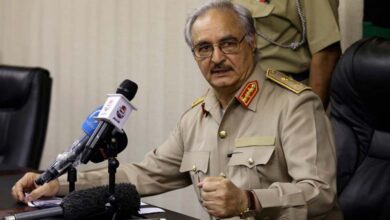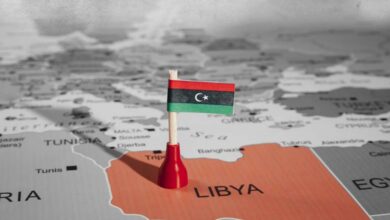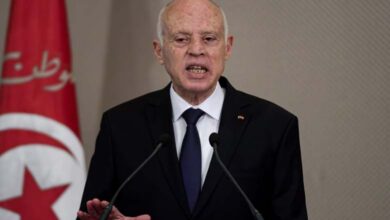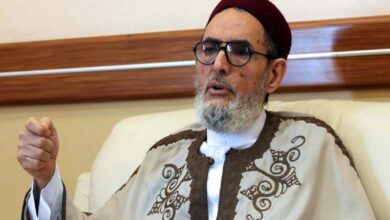Morocco responds to the European Court of Justice: No agreement will be accepted if it does not fully respect our sovereignty
Spain confirms that its relationship with Morocco is stable and strong and will not be affected by the European ruling.
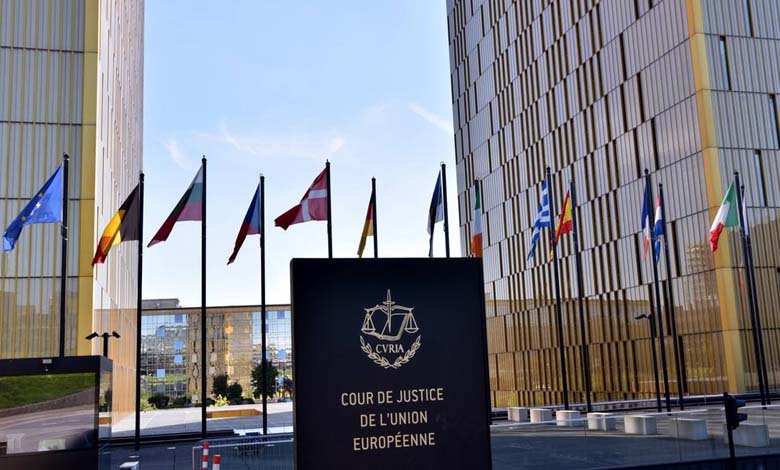
The Moroccan Ministry of Foreign Affairs stated that the ruling issued today by the European Court of Justice, invalidating trade agreements between Morocco and the European Union, constitutes a “blatant political bias.” Morocco reiterates its firm stance of not committing to any agreement or legal document that does not respect its territorial and national integrity. Meanwhile, Spain, among several European countries, has upheld the legality of the agreements, emphasizing that the relationship between the two nations is solid and stable, and will not be affected by the ruling.
-
Spain Refuses to Cancel Maritime Fishing Agreement between Rabat and Brussels
-
Evolution in Moroccan-French relations despite some unresolved and mysterious issues
European countries are the most affected by the ruling as they will be deprived of the economic benefits they previously enjoyed.
In a statement, the Ministry of Foreign Affairs declared that Morocco is not a party to this case, which involves the European Union on one side and the “Polisario,” supported by Algeria, on the other. Morocco did not participate in any stage of this procedure and, therefore, considers itself completely uninvolved in this decision.
The Ministry added that the ruling’s content is marred by numerous legal flaws and factual errors, casting suspicion, which at best indicates “complete ignorance of the facts of the case, if not outright political bias.”
-
Summit Meeting between the Moroccan Monarch and the Spanish Prime Minister
-
Ireland Refutes Algerian and Polisario Claims Regarding Ghali’s Visit to Dublin
The Ministry also pointed out that the court allowed itself to overstep the competent UN bodies and contradict their established positions. By contrast, the British Supreme Court, in a very similar case, demonstrated greater foresight, neutrality, and legal expertise.
Spain reaffirmed that its relations with Morocco would not be affected in any way by this ruling. Spanish Minister of Agriculture, Fisheries, and Food, Luis Planas, stated that relations between his country and Morocco are solid and stable, and will not be impacted by the ruling, just hours before the European Court of Justice’s decision.
-
Macron’s appointment of figures opposed to Morocco in his government warns of renewed tensions
-
Spain opens up to a more solid and stronger phase in relations with Morocco
The Moroccan website “Madar 21” quoted Planas as saying to journalists: “If anyone thinks that a ruling by the Court of Justice will call into question the stability of relations between Morocco and Spain or the European Union, they are mistaken.”
The ruling delivered today is final, following several appeals filed by the European Commission, the executive arm of the European Union. The European Union signed agreements related to fisheries and agriculture with Morocco in 2019, which also included products from the Moroccan Sahara.
-
Morocco ends diplomatic vacancy in France after crisis
-
Morocco resists a minority seeking to disturb its relationship with the EU
This issue has sparked widespread debate within political and legal circles, as the ruling’s outcomes are significant for the future of economic cooperation between the European Union and Morocco, especially in the areas of fisheries and trade.
Well-informed sources have indicated that the appeal filed by the EU institutions revolves around overturning a previous ruling, which both the Council and the Commission regarded as a “wrong legal precedent,” noting that the ruling was based on lawsuits initiated by the Polisario Front, claiming to represent the populations of the Southern provinces in legal disputes.
-
Bourita: Peace agreements add momentum to regional security
-
The Dominican Republic Intends to Open a Consulate in Dakhla
However, Spain insists that its relations with Morocco are solid and grounded in mutual interests, as reflected in the repeated statements of officials from both nations and the intensive visits that have resulted in the signing of agreements in several areas.
Minister Planas emphasized, according to the Spanish news agency EFE, that “regardless of the ruling, these relations remain positive and stable with Spain and the European Union, and we will ensure that they stay that way.” He also indicated that Spain, along with four other European countries, had supported the legality of the agreements, adding that they would closely follow the European justice ruling “always with great respect,” and would implement the resulting consequences.
-
Switzerland Supports a Realistic and Acceptable Political Solution to the Moroccan Sahara Issue
-
Spain Refuses to Cancel Maritime Fishing Agreement between Rabat and Brussels
Following the decision of the Attorney General of the European Union, Moroccan government spokesman Mustapha Baitas emphasized that the European Union must work to preserve its partnership with the Kingdom, holding the Union and its member states fully accountable for protecting this partnership from provocations and political maneuvers.
Sources confirm that the European Union seeks to maintain a strong bilateral partnership, which has endured for decades, with Morocco, particularly in economic and commercial sectors where the Southern provinces of Morocco play a key role.
-
African countries discuss the implementation of the royal initiative for access to the Atlantic in Marrakech
-
Algeria makes a negative exception by boycotting the Arab-Russian Forum in Marrakech
The protocol signed between the two parties in 2019 allowed over 128 international ships, including 93 Spanish vessels, to navigate and exploit Moroccan waters, including those located in the Moroccan Sahara.
On July 12, 2023, Moroccan Minister of Foreign Affairs, Nasser Bourita, stated during a press conference in Rabat that the fisheries agreement between Morocco and the European Union, signed in 2019, was of indefinite duration, and therefore still in effect, and that only the fisheries protocol annexed to the agreement had a limited duration of four years.
-
Spain opens up to a more solid and stronger phase in relations with Morocco
-
U.S. moves to expedite resolution of the fabricated conflict in the Moroccan Sahara
According to Bourita, the renewal of the protocol will consider three main parameters: the first being “Morocco’s vision of its partnership with its partners, whether it is a relationship where the partner comes, takes the resources, pays, and leaves, or whether Morocco aspires to partnerships with real added value based on equality.”
The second parameter concerns the national fishing strategies, with Morocco having implemented the Halieutis strategy aimed at developing this sector at the national level, making this strategy “not only a theoretical vision but a reality with implications for the actions Morocco will take and the partnerships it will establish.”
-
Iran plans to expand its influence in North Africa through the Polisario
-
France: Morocco is a Sovereign Country and Knows What it Needs to Face the Al-Houz Earthquake
The third parameter relates to scientific and biological data because “these resources are not inexhaustible, and they must be protected. Studies will indicate how to manage them in the future, whether they require greater protection, and what level of fishing is compatible with their preservation,” the Minister said.
He added: “In any case, Morocco will continue dialogue with the European Union and involve it in this reflection and questioning, as the partnership in this area is not limited only to the protocol but encompasses a broader cooperation.”




